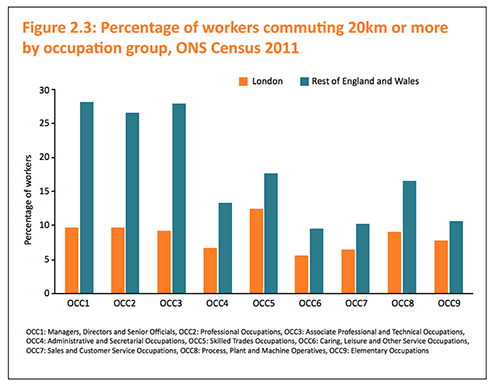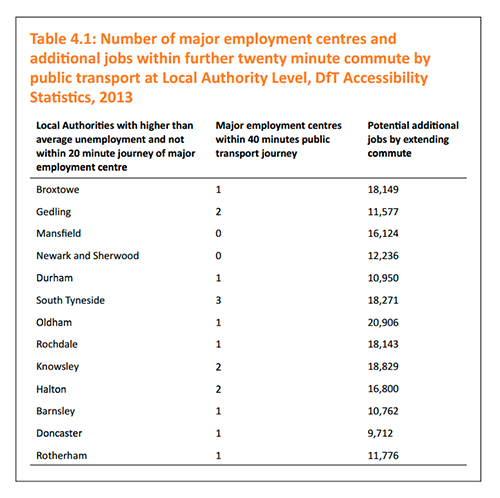How can he achieve all of this?
“By being inclusive and transparent,” he replies. “Making sure all the local transport authorities are involved and understand the process. Making the case of why our transport plan is good for the North. If we get a stronger and more economically vibrant north, that is good for each of the regional parties.
“We have experienced no resistance from any of the transport authorities. There is a high level of aspiration and expectation.”
And what about those civil servants at the DfT, who are being asked to shrink their scope, authority and influence?
“The Department has to change because of us. We have regular meetings. They are involved in the decision-making. We will take responsibilities and powers that currently sit within the Department. And when that happens it will need the DfT to change both what it does and how it is financed.
“Bear in mind we are the first of what could be a number of sub-national transport bodies. So the Department will have to recognise that the change could happen across the country.”
It is likely that the Midlands will be next. The Government is devolving transport powers to English local authorities through the Cities and Local Government Devolution Bill and a forthcoming Buses Bill, which would give directly-elected mayors the responsibility to run local buses.
Brown notes: “To the north and west of us the powers are already devolved - the Welsh and Scottish Governments. And we are in discussion with Midlands Connect because they will be our southern boundary. So we would be at the centre of a significant devolution.
“Now we have to get the definitive voice of the North, and decide our requirements. We have to clearly articulate those requirements with strong supporting evidence to make the case to central government. This could involve us taking a greater commissioning role with people like Network Rail and Highways England.
“We envisage a greater role for Transport for the North in setting national objectives, through the HLOS and RIS processes. We will be involved from the start in setting the expectations of what Network Rail has to deliver. The role of ensuring that it brings forward the right solutions and takes any decisions that have an impact on local services and communications, that will rest with us and we will hold them to account.”
Brown is clear that TfN and TfL are very different organisations. He is not seeking to replicate what London has done.
“Geographically we are much bigger. The governance structure is much more rooted in local authorities. We have the potential for powers and responsibilities that do not sit with TfL. We can be designed from the bottom up - we have not evolved over time.”
There is a perception that TfN is an urban solution to metropolitan problems. A report by The Smith Institute in London suggested that the people who would have most to gain from focused regional investment in transport infrastructure would actually lose out - poor people in deprived or rural areas. Devolution has so far been concentrated on cities that the Government trusts to take on new powers.
Brown refutes this strongly. “The northern transport strategy has to cover the whole of the North. Economic growth here is not just urban. Look at the work on future energy being done in Cumbria through BNFL. Look at bioscience research - that is done in places like Daresbury in Cheshire. It is spread far and wide.”
The Government says the UK has a productivity problem. It is 17% below the average for G7 nations. Devolving transport powers is aimed at improving the mobility of the local workforce, to help reduce the productivity gap between London and other regions.
Jon Lamonte, chief executive of Transport for Greater Manchester, has been at the forefront of change - and not just because he’s giving David Brown some office space!
“The scale of opportunity facing Manchester doesn’t just concern this city and its 2.8 million residents,” Lamonte has said. “All the cities joining together have a population of 15 million. If we were a country we’d be the ninth biggest in Europe, with a collective GDP of £290 billion. If we can sort out some of the connectivity then we can add another £44bn to that.”
A report by The Policy Exchange think tank suggests that making it easier for people on low incomes to commute an extra 20 minutes each way would put them in touch with two or more additional employment sites and 10,000 more potential jobs.
And Chancellor George Osborne predicts that by 2020 the Northern Powerhouse will have generated 100,000 new jobs, raising the employment rate in the North West to the UK average.
And yet… the Campaign for Better Transport warns that much of the potential offered by Transport for the North is being wasted. TfN’s remit does not include buses. That will continue to rest with local transport authorities.
Despite two-thirds of all public transport journeys being made by bus, funding for local buses has reduced by 15% since 2010. More than 2,000 routes have been closed, and more cuts are expected. Further south, Wiltshire Council is consulting on plans to remove all council support for all bus services. It currently partially or wholly supports 50% of services.
“Buses is an issue best picked up at local authority level,” contends Brown. “I have quite enough on my plate. But over the next few years, if we are improving the point-to-point journeys between major centres, those places will also need stable and well-organised bus networks. A number of authorities are already looking at franchising.”
The Trades Union Congress has opposed devolution of rail powers, fearing that it may be used to cut national rail funding and break up National Rail. It believes greater accountability can best be achieved through a national integrated railway under public ownership. This is a view also advocated by Labour leader Jeremy Corbyn.
RMT General Secretary Mick Cash has claimed that 1,000 train guards will be made redundant once Rail North assumes control of the new Northern and Trans-Pennine franchises. “These are skilled quality rail jobs and their loss is hardly the right track to better services or a Northern Powerhouse,” he said.
“When I was leading Rail North we had two meetings with the RMT,” responds Brown. “We were clear that we wanted the best deal for passengers - more trains, better trains and new trains. That in itself will lead to more people with more skills - an increase in the number of people needed to move those extra trains around.
“We are also clear that the contracts with train operators include performance improvements. Customers expect things to get better. Arriva and FirstGroup will lead that - people want more capacity, improved customer service and better value for money.
“We had phenomenal growth in Northern with no investment. When we get refurbished and new trains, and service increases on Sundays and in the evenings, we are going to see an explosion in demand.”













